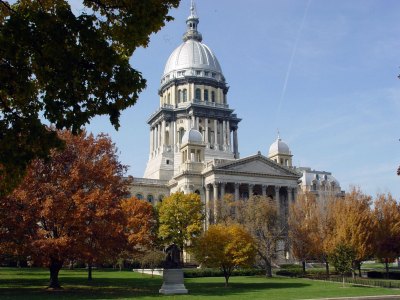Illinois residents can expect a plethora of new laws in 5 days. 255 new laws are expected to take effect on January 1st. The main focus has been on legalized cannabis, as work had already begun on that law back on June 25th when it was signed by Governor J.B. Pritzker.
The state’s minimum wage will increase by $1 an hour to $9.25 per hour on Jan. 1. It is the first increase since 2010. Governor J.B. Pritzker says it is time to pay workers in Illinois a living wage.
“It’s been a long time in coming, it’s been nine long years since workers got a raise, and even nine years ago that raise amounted to twenty five cents.”
A 75-cents an hour increase is scheduled for July 1 of 2020. After that, the minimum wage will increase by $1 an hour each year until it hits $15 an hour in 2025.
Democratic 39th District Representative Will Guzzardi says it is time for workers to earn a paycheck they can actually live on.
“It is not only going to raise wages for 1.4 million Illinoisans, but is also going to recognize the decency of a hard days work. That if somebody shows up to work and works hard, they deserve to earn a living so they can care for their families.”
License plate fees will go up $50 to $151. Fees for electric cars are going up to $248 a year, from the $35 every two years now in effect. And if you park those cars in a commercial lot or garage, you could end up paying a new parking tax. Scott’s Law fines will go up to $250 and failing to reduce speed in a construction zone goes up to a maximum of $25,000. The fine for passing a school bus that is stopped and has its visual signals displayed is doubling, as well.
Restaurants and business will now be required to have changing tables in men’s and women’s restrooms.
Cats will now be required by law to be vaccinated against rabies.
Public and private employers will be required to give employees training to combat workplace sexual harassment. The new law also prohibits private employers from requiring employees to sign non-disclosure agreements covering sexual harassment situations.
Most of the laws were passed during the General Assembly’s regular session that ended in May.




